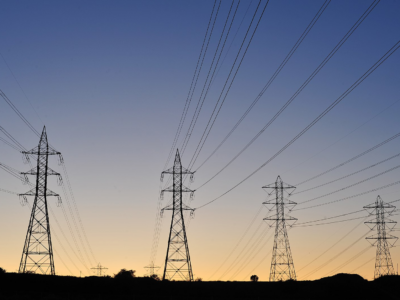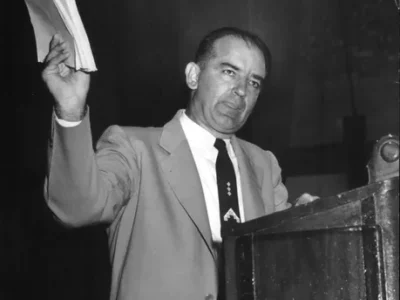A Bitter Pill
Will Trump’s Actions Unravel the Paris Agreement? It’s complicated.
It’s official: President Trump has decided to pull the U.S. out of the Paris agreement. So far as I c an, there’s little support for his decision from anyone who is not beholden to the coal industry. Sadly, this decision is only one way in which this President has dashed the hopes of the world.
This is a bitter pill to swallow. What will the effects be?
We need to begin by being clear about the withdrawal process. Article 28 of the Paris Agreement provides:
- At any time after three years from the date on which this Agreement has entered into force for a Party, that Party may withdraw from this Agreement by giving written notification to the Depositary.
- Any such withdrawal shall take effect upon expiry of one year from the date of receipt by the Depositary of the notification of withdrawal, or on such later date as may be specified in the notification of withdrawal.
Thus, the U.S. cannot give formal notification of its withdrawal until November 4, 2019, three years after the agreement went into force. Withdrawal would take one year later, just before the 2020 election.
This means that Trump’s decision to withdraw could be changed any time until November 2019. That gives him a lot of time to change his mind.
Withdrawal from the agreement will have no direct effect on U.S. emissions. Trump’s regulatory rollbacks are designed to ensure that our carbon emissions will increase, and whether we belong or don’t belong to the Paris Agreement has nothing to do with that, as Ann Carlson has pointed out. And failure by the U.S. to make a good faith effort to meet its targets would undermine the agreement to some extent, even without a formal withdrawal.
The biggest concern about withdrawal is that it would unravel the entire agreement. It seems unlikely that this would happen in the short run. The EU and China are announcing their renewed joint commitment to climate action tomorrow. At this point, Trump has already convinced our allies that they cannot count on the United States, as shown by Angela Merkel’s comments after the G7 meeting. Given that Trump is withdrawing the U.S. from its traditional role of global leadership, other countries will be less likely to follow his example.
Paris is not the only agreement where we are a global outlier. Something similar happened with the Law of the Sea Convention (LOS). The U.S. signed LOS but has never ratified, due to opposition from the far Right. Almost every other country does belong to the Convention, and the Convention has thrived without us. In fact, the U.S. recognizes much of the Convention as legally binding anyway, viewing it as so well established that it is binding as customary international law. The main effect of our outsider status is to hurt ourselves, since we cannot claim the benefit of the Convention on issues such as national jurisdiction in the newly open areas of the Arctic Ocean.
In terms of the longer-term effect of withdrawal from Paris, that depends in part on what happens in the U.S. If the Democrats regain the House in 2018 and the White House in 2020, the rest of the world will rest easier and Paris will be safer.We would then have to work out a way to rejoin the global effort. Obviously, we wouldn’t be turned away from the negotiations. But our credibility, and hence bargaining leverage, could be decreased to the extent that we cannot be relied on to keep to our bargains. On the other hand, Trump’s reelection would require other countries to reconsider this as well as many other aspects of international relations, as they adjust to the U.S. position as an international outlier. Economics also matters: if the price of renewables continues to drop, adherence to the Paris agreement becomes much easier.
In the meantime, Trump’s action means that those of us who recognize the threat of climate change must redouble our efforts. This is a battle we cannot afford to lose. As Indian Prime Minister Modi said on Tuesday, “We do not have the right to spoil the environment for future generations . . .Morally speaking, that would be a crime on our part.”
Reader Comments
7 Replies to “A Bitter Pill”
Comments are closed.







Trump just announced his act of treason against the human race by withdrawing the U.S. from the Paris climate agreement..
As you say “Trump’s action means that those of us who recognize the threat of climate change must redouble our efforts.”
I agree, this is the most serious threat against the human race since WWII, once again the human race needs a spokesperson who motivates action like Churchill to lead us to victory.
Robert Reich is one candidate who is a preeminent worldwide university professor with communications expertise to do the job if intellectual leaders join together and speak out in his support like political and intellectual leaders supported Churchill. Will and Ariel Durant proved that Intellectuals must not allow our civilization to be destroyed by politicians and oligarchs again like so many throughout history.
Excellent examples of his ability to inform and educate the public are documented on his Robert Reich website:
http://robertreich.org/
Yesterday, our CALIFORNIA alumni magazine blog posted “What Cal Experts Are Saying About the Paris Climate Accord Exit” and included important comments by Robert Reich and other Berkeley professors, including:
And, today, in a Facebook post addressed to “the rest of the world,” Reich wrote (on America’s behalf):
“We apologize. We understand our responsibilities as human beings who share this planet with you. This is temporary. Donald Trump doesn’t reflect the views of most Americans. Most of us didn’t even vote for him. We are doing everything we possibly can to remove him from office as soon as legally possible. And when we do, America will once again be a responsible nation.” by Robert Reich
https://alumni.berkeley.edu/california-magazine/just-in/2017-06-01/what-cal-experts-are-saying-about-paris-climate-accord
Does the fact that the accord never went before congress give Trump an avenue to withdraw outside of the accord’/ms timeframe? I guess could he argue it was never officially ratified as a treaty to begin with, etc.?
Jesse – It doesn’t sounds like he’s going that direction. If he did, he would be weakening his own power as well as that of future presidents make deals with foreign countries.
Thanks for the reply, Dan.
I was just wondering this too. It’s legally an incorrect position, and as you say, Dan, it would weaken his and the US’s authority internationally for him to take the position that we wouldn’t honor an international commitment because of a dispute over US domestic law and procedure. But on the other hand, his actions so far don’t demonstrate any concern on his part for his, or future presidents’, credibility with foreign leaders.
You people must learn to focus on producing and implementing solutions today, as Dan said “Trump’s action means that those of us who recognize the threat of climate change must redouble our efforts.”
What Trump did means our political and intellectual leaders have totally failed to protect quality of life for future generations.
So we are experiencing this worst case scenario because the facts are that the democratic party has now lost control of everything in Washington, while intellectuals are still losing the war against global warming for the same reason, because of cultural and mental failures we never overcome, we keep proving that greed to satisfy immediate personal lusts for wealth and power overwhelm our ability to protect the environment for future generations.
Time is running out and we are still acting like lemmings.